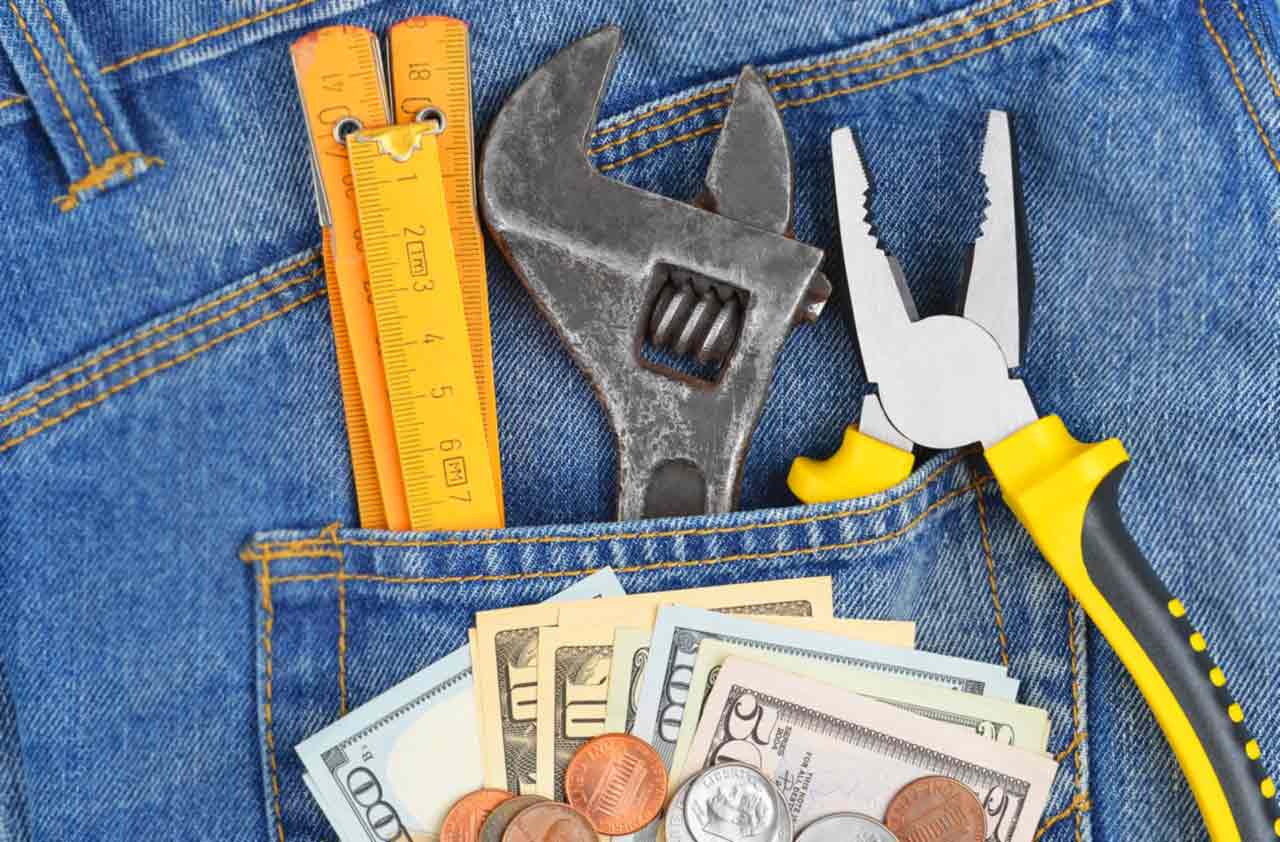Know What You Want in Retirement Before You Buy the Tools to Build It
Too many people go about building their retirement plan backward. They get caught up in the investment part of the plan first and figure they'll worry about what their actual goal is later.


Profit and prosper with the best of Kiplinger's advice on investing, taxes, retirement, personal finance and much more. Delivered daily. Enter your email in the box and click Sign Me Up.
You are now subscribed
Your newsletter sign-up was successful
Want to add more newsletters?

Delivered daily
Kiplinger Today
Profit and prosper with the best of Kiplinger's advice on investing, taxes, retirement, personal finance and much more delivered daily. Smart money moves start here.

Sent five days a week
Kiplinger A Step Ahead
Get practical help to make better financial decisions in your everyday life, from spending to savings on top deals.

Delivered daily
Kiplinger Closing Bell
Get today's biggest financial and investing headlines delivered to your inbox every day the U.S. stock market is open.

Sent twice a week
Kiplinger Adviser Intel
Financial pros across the country share best practices and fresh tactics to preserve and grow your wealth.

Delivered weekly
Kiplinger Tax Tips
Trim your federal and state tax bills with practical tax-planning and tax-cutting strategies.

Sent twice a week
Kiplinger Retirement Tips
Your twice-a-week guide to planning and enjoying a financially secure and richly rewarding retirement

Sent bimonthly.
Kiplinger Adviser Angle
Insights for advisers, wealth managers and other financial professionals.

Sent twice a week
Kiplinger Investing Weekly
Your twice-a-week roundup of promising stocks, funds, companies and industries you should consider, ones you should avoid, and why.

Sent weekly for six weeks
Kiplinger Invest for Retirement
Your step-by-step six-part series on how to invest for retirement, from devising a successful strategy to exactly which investments to choose.
Imagine you hired a contractor, gave him some money and told him to go out and buy whatever tools and supplies he might need for the job — but you didn’t say what you wanted him to build.
He doesn’t know if it’s a house or a commercial office building. Or maybe it’s a hotel or hospital.
And, of course, the tools differ depending on the project.
From just $107.88 $24.99 for Kiplinger Personal Finance
Become a smarter, better informed investor. Subscribe from just $107.88 $24.99, plus get up to 4 Special Issues

Sign up for Kiplinger’s Free Newsletters
Profit and prosper with the best of expert advice on investing, taxes, retirement, personal finance and more - straight to your e-mail.
Profit and prosper with the best of expert advice - straight to your e-mail.
That’s how a lot of people go about building their retirement plans. They tend to focus on the tools they think they should have — stocks, bonds, annuities, real estate or commodities — instead of what they ultimately hope to accomplish with those tools: a comfortable lifestyle with enough money to last at least 20 or 30 years.
That’s a big project that requires a lot of problem-solving:
- You should have an emergency fund with six months’ to a year’s worth of easy-to-access money to cover everything from home or car repairs to unexpected health care costs.
- You have to generate income, so you have something to pay the bills when your paycheck goes away.
- You have to pay attention to taxes, and figure out how to outpace inflation.
- You have to take long-term care costs into consideration, too, and put away something in case you or your spouse needs special or extended health care.
- And you may want to leave some money behind for your children or grandchildren.
The project should start with an income plan.
If you haven’t done so already, you’ll need to put together a realistic budget for your retirement years. Next, you should figure out how you’ll cover those day-to-day costs with money you know you can count on — Social Security, a pension if you have one, maybe an annuity or rental properties. Once you’ve done that, you can determine how much you’ll need to add every year from your investment savings.
And that’s when you can begin looking for the appropriate tools and strategies to generate the income you’ll need.
It starts with a change in the way you look at investing. While you’re working, your goal is to accumulate money — and the tools you choose should help you with that — but when you are in or near retirement, you have to worry about making that money last.
It helps to break your needs into three levels.
1. Income for your immediate needs.
This is the money you’ll use to supplement your guaranteed income streams and pay your bills, so you want to make sure it’s enough and that it’s safe.
I like the idea of creating your own pension with a deferred annuity, a contract in which the money you deposit grows, protected and tax-deferred, until you’re ready to use it. Many people misunderstand annuities: They like the idea of lifetime income, but they believe that if they die prematurely, the money will be lost and won’t go to their loved ones. But this type of annuity includes a death benefit component that ensures your beneficiaries will receive any remaining principal investment and any gains in the account.
2. Income for your intermediate needs.
Once you’ve figured out how you’re going to pay your monthly expenses, you can move on to some other things that might come up during retirement. Maybe you’ll want to buy a new car at some point, or to travel, or you may need something to live on until you turn on the income from your deferred annuity.
This money can come from stocks and bonds, but they should still be conservative investments. If you’ll need to access the money sometime in the next 10 years, you can’t afford to take a lot of risk with it.
3. Income for your long-term needs.
This is money you won’t touch for at least 10 years, but it will come in handy when you have to deal with inflation and more health care costs and if you want to leave money to your children. Because these are costs you’ll face down the road, you can choose more aggressive investments to help pay for them. If the market experiences a downturn, you’ll still have time to recover. And if you’ve already covered the costs you might have in the short to medium term, you won’t have to sell at a loss.
Unless you win the lottery or inherit a fortune, the money you have when you retire is pretty much all you’re going to have to work with. How you’ll make it last is up to you.
To build a stable retirement, come up with a vision of what you want to accomplish, use a well-designed blueprint to get you started (preferably with the help of an experienced financial professional), and then worry about gathering the tools that can help you do the job.
Kim Franke-Folstad contributed to this article.
Investment advisory services offered through AE Wealth Management, LLC (AEWM). AEWM and Freedom Financial Group are not affiliated entities. Investing involves risk, including the potential loss of principal. Any references to protection benefits, lifetime income and safety generally refer to fixed insurance products, never securities or investment products. Insurance and annuity product guarantees are backed by the financial strength and claims-paying ability of the issuing insurance company.
Profit and prosper with the best of Kiplinger's advice on investing, taxes, retirement, personal finance and much more. Delivered daily. Enter your email in the box and click Sign Me Up.

Tad Hill is the founder and president of Freedom Financial Group, a retirement planning firm in Birmingham, Ala. Hill is a Chartered Retirement Planning Counselor (CRPC®) and a Registered Financial Consultant (RFC). His clients are those who are either already retired or who are within five or 10 years of retirement.
-
 Ask the Tax Editor: Federal Income Tax Deductions
Ask the Tax Editor: Federal Income Tax DeductionsAsk the Editor In this week's Ask the Editor Q&A, Joy Taylor answers questions on federal income tax deductions
-
 States With No-Fault Car Insurance Laws (and How No-Fault Car Insurance Works)
States With No-Fault Car Insurance Laws (and How No-Fault Car Insurance Works)A breakdown of the confusing rules around no-fault car insurance in every state where it exists.
-
 7 Frugal Habits to Keep Even When You're Rich
7 Frugal Habits to Keep Even When You're RichSome frugal habits are worth it, no matter what tax bracket you're in.
-
 For the 2% Club, the Guardrails Approach and the 4% Rule Do Not Work: Here's What Works Instead
For the 2% Club, the Guardrails Approach and the 4% Rule Do Not Work: Here's What Works InsteadFor retirees with a pension, traditional withdrawal rules could be too restrictive. You need a tailored income plan that is much more flexible and realistic.
-
 Retiring Next Year? Now Is the Time to Start Designing What Your Retirement Will Look Like
Retiring Next Year? Now Is the Time to Start Designing What Your Retirement Will Look LikeThis is when you should be shifting your focus from growing your portfolio to designing an income and tax strategy that aligns your resources with your purpose.
-
 I'm a Financial Planner: This Layered Approach for Your Retirement Money Can Help Lower Your Stress
I'm a Financial Planner: This Layered Approach for Your Retirement Money Can Help Lower Your StressTo be confident about retirement, consider building a safety net by dividing assets into distinct layers and establishing a regular review process. Here's how.
-
 The 4 Estate Planning Documents Every High-Net-Worth Family Needs (Not Just a Will)
The 4 Estate Planning Documents Every High-Net-Worth Family Needs (Not Just a Will)The key to successful estate planning for HNW families isn't just drafting these four documents, but ensuring they're current and immediately accessible.
-
 Love and Legacy: What Couples Rarely Talk About (But Should)
Love and Legacy: What Couples Rarely Talk About (But Should)Couples who talk openly about finances, including estate planning, are more likely to head into retirement joyfully. How can you get the conversation going?
-
 How to Get the Fair Value for Your Shares When You Are in the Minority Vote on a Sale of Substantially All Corporate Assets
How to Get the Fair Value for Your Shares When You Are in the Minority Vote on a Sale of Substantially All Corporate AssetsWhen a sale of substantially all corporate assets is approved by majority vote, shareholders on the losing side of the vote should understand their rights.
-
 How to Add a Pet Trust to Your Estate Plan: Don't Leave Your Best Friend to Chance
How to Add a Pet Trust to Your Estate Plan: Don't Leave Your Best Friend to ChanceAdding a pet trust to your estate plan can ensure your pets are properly looked after when you're no longer able to care for them. This is how to go about it.
-
 Want to Avoid Leaving Chaos in Your Wake? Don't Leave Behind an Outdated Estate Plan
Want to Avoid Leaving Chaos in Your Wake? Don't Leave Behind an Outdated Estate PlanAn outdated or incomplete estate plan could cause confusion for those handling your affairs at a difficult time. This guide highlights what to update and when.